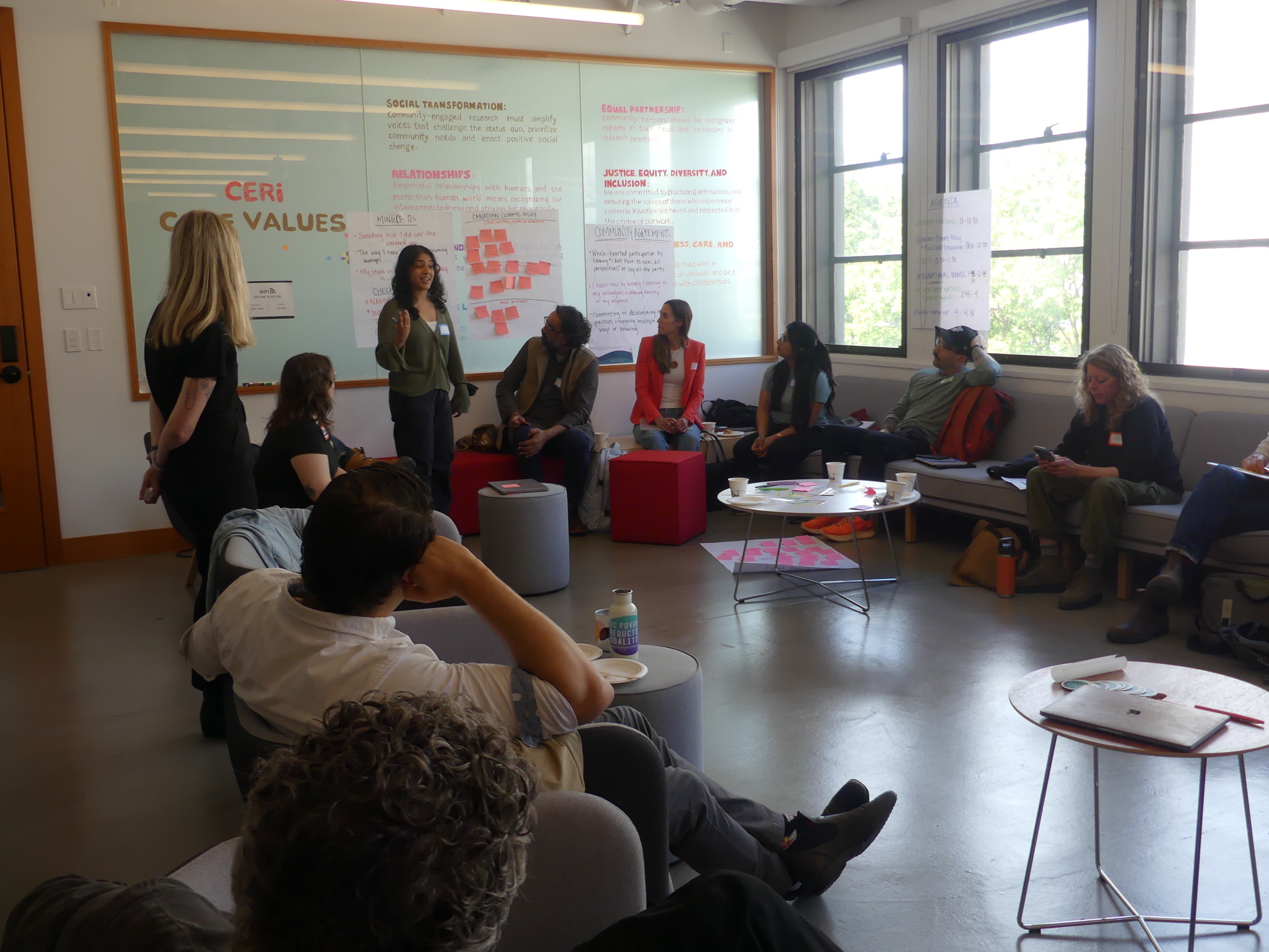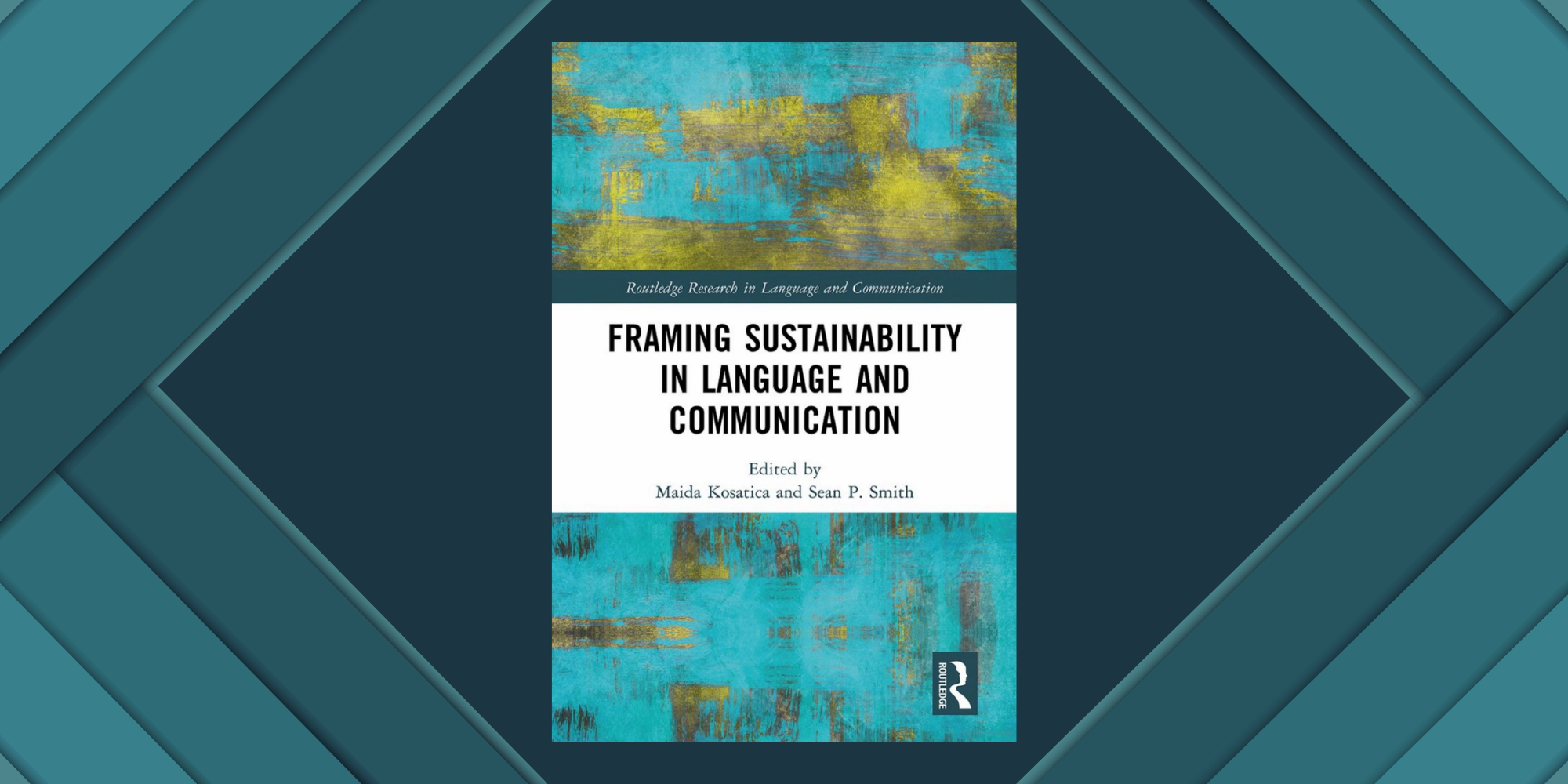

The Climate Policy Workshop, co-hosted by the Centre for Climate Justice and Simon Fraser University’s Community-Engaged Research Initiative (CERi), gathered experts from various disciplines and organizations to address pressing questions about the future of climate policy in Canada. The session’s purpose was to bridge the gap between generalists and specialists, creating a space where diverse backgrounds and approaches to solving systemic problems could come together. The session also aimed to foster a collaborative environment, bound by shared principles, a vision for the future, and common values. Participants were encouraged to embrace this diversity, recognizing that each had something powerful to offer, and to see research as a form of organizing that supports collective effort.
Canadian Climate Policy & Backlash: Hadrian Mertins-Kirkwood
During the first session led by Hadrian Mertins-Kirkwood from the Canadian Centre for Policy Alternatives, attendees received a comprehensive overview of Canada’s current climate policy landscape. Despite notable progress, Canada still faces significant challenges in meeting emissions targets. For instance, the fossil fuel industry, responsible for over 30% of the country’s greenhouse gas emissions, remains a major obstacle to reducing carbon output. While federal initiatives like the phase-out of coal power have shown success due to stringent regulations and clear timelines, other areas such as transitioning workers and regional economies away from fossil fuels lack comprehensive plans. The discussion underscored the high economic and environmental costs of climate change, with projected losses ranging between $400 billion and $800 billion by the end of the century. Moreover, the session revealed a lack of representation of historically marginalized groups in emerging green industries, undermining broader support for climate action.
Transitioning to the topic of backlash against climate policy, participants delved into the intricacies of both external and internal resistance. The “Axe the Tax” campaign spearheaded by federal and provincial conservatives emerged as a significant source of opposition, leveraging concerns about perceived federal overreach and its impact on the fossil fuel industry. Amidst these challenges, discussions emphasized the importance of effective communication and narrative-building to counter misinformation. Many Canadians, while supportive of climate action in principle, struggle to endorse specific policies. This disconnect is exploited by a vocal minority who amplify concerns such as the high cost of living and housing to undermine climate agendas. Attendees explored strategies to leverage social media and other platforms to reach a broader audience and foster engagement in climate initiatives.
Militarism and Climate Denial: Patrick Bigger
Incorporating an internationalist perspective, the workshop then delved into discussions about the surge in climate denial, nationalist rhetoric, and policies perpetuating fossil fuel dependency. Patrick Bigger from the Climate and Community Project shed light on the interplay between militarism and climate change, emphasizing the significant role of militaries in the global emissions landscape, contributing 5.5% of emissions and acting as guarantors of fossil fuel demand and protectors of the industry. The session outlined three forms of systematic violent responses: maintaining fossil fuel economies, securing transition resources, and deploying militarized violence against movements.
Securing transition resources requires military actions to secure critical minerals and land for carbon offsets, with emerging complexes and new industrial policies driving military demand for these resources. Paramilitary responses to climate disasters are escalating, particularly in regions like Latin America, where violence against climate protesters is prevalent. Furthermore, the session highlighted the “soft power” of the global financial system, exacerbating structural inequalities in the Global South and perpetuating the slow violence of the global political economy.
Attendees emphasized the need to confront Canada’s involvement in the US military-industrial complex, and understand the nexus between militarism, colonialism, and climate policy. Initiatives such as the Union for Defense Industry Workers’ peace economy group were recognized as potential avenues for addressing the climate-military link. Overall, the session underscored the importance of focusing efforts on a select group of actors responsible for climate and military crises and fostering a decolonized approach to climate justice agendas.
BC as a leader in climate action: Seth Klein
The following session led by Seth Klein from the Climate Emergency Unit enabled participants to critically examine the narrative that BC is a leader in climate action. Despite claims of leadership, BC’s greenhouse gas emissions have remained consistently high over the past few years, with minimal progress since the introduction of Clean BC policies. BC’s reliance on natural gas and the fossil fuel industry has been identified as a primary contributor to the climate crisis, yet the province has taken limited action to address this issue, and has in some cases further entrenched natural gas infrastructure. While some policies, such as carbon pricing and carbon neutrality commitments, give the appearance of progress, they do not effectively mitigate the impacts of the fossil fuel industry. The session highlighted the disconnect between visible actions, such as investments in EV infrastructure, and the less visible support for LNG projects and continued subsidization of the oil and gas sector. Discussions revolved around strategies to challenge the perception of BC as a climate leader, including legal actions against companies for greenwashing, improving climate literacy, and increasing public awareness of the health impacts of fossil fuel use. The session concluded with a call for more tangible and impactful climate policies that address the root causes of emissions in BC.
BC First Nations Climate Strategy and Action Plan: Patricia Rojas
Patricia Rojas from the BC Assembly of First Nations then shared insights into the high-level goals and priorities of the BC First Nations Climate Strategy and Action Plan. The plan aims to secure stable and long-term financing to support climate actions by First Nations, Inuit, and Metis peoples. Notably, federal commitments include allocating $29.6 million over three years to develop an Indigenous Climate Leadership Agenda, with funding distributed to regional leads nationwide. However, structural challenges such as limited capacity for climate action and short-term funding cycles pose significant obstacles. Additionally, there is a pressing need to address the lack of recognition of First Nations knowledge systems in climate policy development. Key aspects informing climate policy reform from a First Nations perspective encompass Natural Law, First Nations worldviews, lived reality, and the legislative, legal, and policy ecosystem. Challenges in development and implementation include changes in funding delivery and securing long-term funding for First Nations, which could be addressed through the establishment of a dedicated climate fund. Going forward, addressing structural barriers and ensuring meaningful recognition of First Nations knowledge systems will be crucial in realizing the objectives outlined in the BC First Nations Climate Strategy and Action Plan, and will be pivotal for climate action as a whole.
The Way Forward
In closing, the workshop provided a crucial platform for experts and stakeholders to engage in deep, meaningful discussions on the complexities of climate policy in Canada and beyond. By exploring diverse perspectives and sharing valuable insights, participants have laid the groundwork for future collaborations and initiatives aimed at tackling the urgent challenges posed by climate change. The exchange of ideas and expertise at this workshop will support ongoing research at the CCJ to develop a landscape analysis of major trends in climate policy at the federal and provincial levels in Canada, and to identify opportunities for pursuing progressive climate agendas across Canada.













